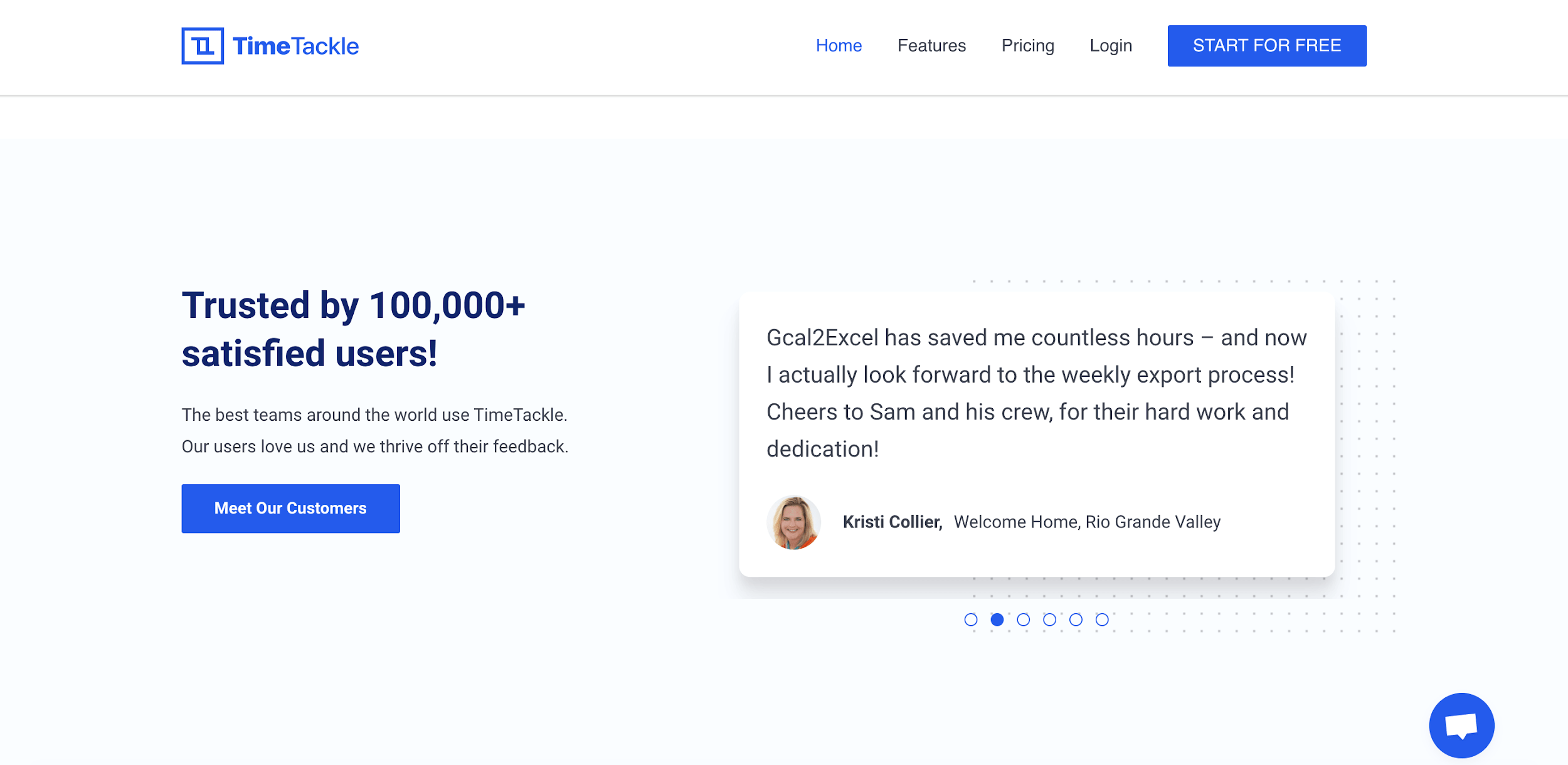How to Generate Massive Social Proof to Increase Web Conversions
Generate Social Proof
People are used to finding what they need on the internet. Options for pretty much any product or service abound. Landing pages across the web are locked in a never ending battle for the final click that converts a visitor into a customer or subscriber.
With no shortage of options, how do visitors make their decisions?
Well, pricing plays an important role in effectively communicating the product’s value proposition.
But one of the most effective conversion rate optimizers is providing credible social proof. Statistics have shown that:
- Testimonials are proven to increase sales by up to 34%.
- The average online shopper spends more than 13 minutes reading reviews before they make a final decision.
- A staggering 93% of internet users say that online opinions influence where they spend their money.
It’s stats like these that urge marketers to put in more effort when it comes to social proof. So let’s take a look at actionable examples of social proof that you can replicate on your site.
-
Allow Customers to Leave Reviews and Star Ratings
This is an especially popular mechanism on e-commerce sites that sell multiple products. Amazon is simply the king of getting this right. Each product – in fact, even each link to a product – displays the average star rating that customers have given it.
Alongside each star rating value is the number of people contributing to it, adding massive credibility to the score. The star rating element is also clickable, navigating the user to that particular product’s reviews page – and here is where Amazon really brings it home.
Shoppers can read all reviews chronologically, or they can click on a particular rating (one star, three stars, five stars) to filter for reviews associated with that particular score.
Amazon understands how important review research is to online shoppers – especially on a platform where they’re spoiled for choice. Bear this in mind if you’re running an e-commerce site, even more so if your online store offers plenty of options. Your visitors are desperate for this info. Give it to them!
-
Provide Relevant, Relatable Testimonials to Generate Social Proof
These are slightly more appropriate for websites selling either a premium service or product, typically associated with marginally longer sales cycles.
A good testimonial is one where the prospect sees how a particular pain point was solved for a satisfied customer whom they can relate to. They’re also usually provided by parties or companies with specific insight into the applicable industry, which is why you often see the person’s occupation or position alongside their name and photo.
Timetackle.com shows us an excellent example of how this is done. On their homepage, underneath a heading reading “Trusted by 100,000+ satisfied users!” is a frame showing feedback from six customers. Each testimonial has been chosen because it highlights the very real benefit the customer experienced and how it positively impacted their lives and careers.

image source: timetackle.com
The company goes the extra mile by also providing a dedicated testimonial page. Here, site visitors can read longer quotes from a larger selection of satisfied customers. The point of each testimonial is for the potential customer to identify with the problems the reviewer experienced – and to instantly imagine how much better things will be once these are solved.
Reach out to your customer base and ask them to tell you how your product or service made their lives better. Visitors to your site are eager to identify with your existing users.
-
Highlight Press Coverage to Generate Social Proof
If you’ve had some positive coverage by a credible media source, get that into the spotlight ASAP. Eachnight shows us how important they consider their third-party exposure by placing it front-and-center on their home page, right below the hero header.

image source: eachnight.com
There are two excellent reasons positive media coverage needs to be highlighted:
- Firstly, if your product is good enough to be found and reviewed by a reputable publication, it speaks to its quality. Simple as that. Even if the coverage was via a paid press release, the mere fact that your company had the means to get themselves mentioned generates credibility.
- Secondly, seeing a globally recognizable logo on your website makes it trustworthy. Essentially, by getting covered by a media giant, you’re getting legitimate permission to leverage their image for credibility. Don’t waste this opportunity.
Whether you want to link to the content itself is entirely up to you. Some companies may opt against it if the content favors a competitor. However, it may be a good idea to have some evidence of the coverage on-hand, should a skeptical visitor contact you.
-
Make Social Proof Part of Your Visitors’ Experience
When a conversion on your site doesn’t necessarily need a transaction, but rather just a click through to curated content, building social proof into the visitors’ experience is an interesting option.
Startup Resources manages to make social proof part of their UX by allowing any visitor to upvote any of the informational content pieces they aggregate on their site.

image source: startupresources.io
Articles displayed under each category are sorted by popularity (those having received the most upvotes), with the number of upvotes clearly displayed to site visitors. This number is an immediate indicator of content quality and speaks to the curators’ ability to track down valuable information on niche topics.
It’s also more likely that a visitor will click through to an article that’s been voted as best-in-category by their peers. Seeing that several content pieces have a significantly higher number of upvotes is an instant boost in its credibility and very likely to result in a conversion.
Something that Startup Resources were smart to allow as part of this mechanism was voting without registration. This enables the site to leverage all of their traffic for social proof, even casual visitors.
-
Highlight Relationships with Elite Customers
If one or more of your customers are household names with globally recognizable logos, you’ll want to scream this from the digital rooftops, wouldn’t you?
Fortunately, your website allows you to do this.
FileCamp shows us how this can be done in an elegant, unobtrusive way on their Digital Asset Management page. Notice how the UI element they use here cycles between different views, displaying only eight client logos. A section displaying 24 logos would have been overkill and a waste of valuable real-estate.

image source: filecamp.com
If this is an approach you’re interested in, something to bear in mind is that many companies will protect themselves against having their brands appropriated like this without permission. When entering into a partnership, be upfront about your intention to use them on your promotional material, and ask for permission. Approval should also be stipulated in your contract.
When a potential partner or client sees an iconic brand listed as one of your partners, you’re adding massive credibility to your offering and removing a large obstacle to conversion.
-
Flaunt Your Accreditations
B2B sales cycles can be long. That’s often the case because of the governance that goes into ensuring the product or service meets certain benchmarks of quality.
If you’re selling predominantly to businesses in a particular industry, it’s a great idea to display certifications or accreditations you’ve earned as proof of your credibility.
Accreditation varies quite a lot, depending on the industry you find yourself selling in. Professional service providers like accountants or lawyers would obviously need to reference their degrees, while other accreditations would be far simpler to acquire.
For instance, if you work in digital marketing, HubSpot offers several online courses backed by their brand. Completing one of these certificates allows you to display your expertise on your website proudly. Freelance writer Kristi Hines shows us how to do this on her site’s homepage.

image source: kristihines.com
-
Invest in Case Studies to Generate Social Proof
This is another way to “grease the wheels” of a complicated sales funnel. A case study is essentially a longer, more formal testimonial that delves into the nitty-gritty of how your product or service helped a particular customer.
What’s important with a case study is that it’s packed with facts, measurable outcomes, and references. There’s typically a formal structure to a case study, although there’s no governing authority who’ll check up on you here.
OptinMonster has gone all-in with this social proof strategy, creating complex, thoughtful analyses of almost a hundred of their professional relationships.

image source: optinmonster.com
Case studies aren’t ideal conversion tools for every business. Ideally, you’ll only be publishing them if you’re integrating your services with many aspects of a customer’s operations. You’ll need to show exactly how adopting your expertise has resulted in measurable improvements.
You also can’t hold back on details, so make sure your customer is comfortable with the inner workings being exposed before creating and publishing a case study.
Generate Social Proof – Final Words
Aside from the seven examples we discussed in this piece, there are dozens of ways to shorten your sales cycle by improving your credibility in the eyes of a prospective customer.
To find the ones that will work for you, always think about it from the visitor’s perspective. Step back, try to be objective, and think about what they will want to see.
Thinking critically about how your service meets its target audience’s needs is the key to providing the right kind of social proof. Always remember this as you embark on the journey towards greater trust and better conversion rates.
About Karl Kangur

Karl Kangur is a serial entrepreneur and digital marketing nerd. He founded his first business as a teenager and loves to deliver amazing results to clients. His doctor told him to stop lifting heavy weights.
Content Marketing Sales Funnel
Your content marketing sales funnel is all about getting people to know, like and trust you by nurturing them with the right information at the right time.

